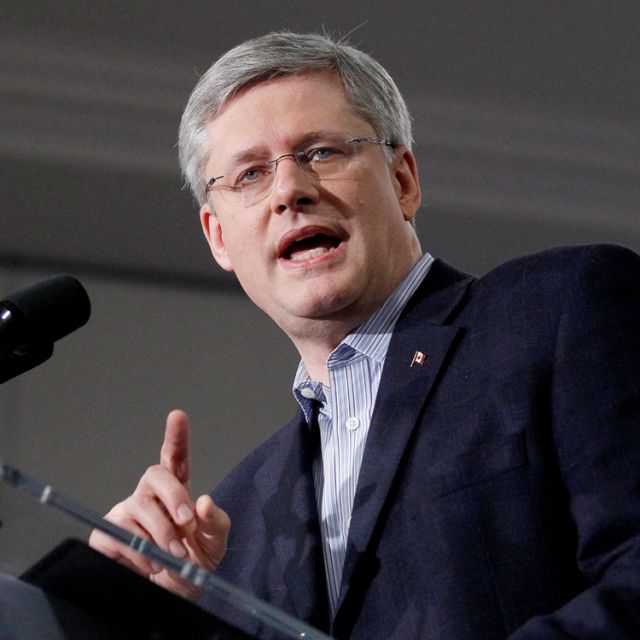Curiouser and curiouser, even when that pledge was repeated in the Throne speech last June, the plan to make defense of religious freedom a vital part of Canadian foreign policy was met by the usual suspects with an almost universal: “Meh — call us when you’ve got something for us to grouse about.”
Only now that the office has become more substantial than a politician’s promise are tongues beginning to tut, faces twisting into consternation and voices rising to the patronizing pitch that is the hallmark of our self-anointed social guardians. The outbreak to date has been more a matter of sniping grumpiness by critics employing the ever-treacherous rhetorical technique of “just askin’ questions.” These questions actually cloak ill-willed assumptions and facilitate reckless accusations.
The CBC started things off with a truly bizarre complaint dressed up as a news story. It claimed that an inaugural meeting in October between Foreign Affairs Minister John Baird and various faith leaders was not “inclusive” enough because it had too many Christians and insufficient representatives of “Eastern” religions.
As TV pundit and Register columnist Michael Coren said in his scalding appraisal of the CBC report: “Eastern religions? Where does the CBC think Christianity began — in Kitchener?”
As a toddler follows an older sibling, of course, The Globe and Mail soon picked up the theme with a headline asserting that the Harperites are creating the Office of Religious Freedom to “preach” American-style evangelicalism to the rest of the world. There followed the usual dog-and-bone debate over the supposed danger Canadians are facing now that something that does not yet even exist has already been proven, based on entirely speculative argument, to be a bad thing. (See “ill-willed assumptions” and “entirely reckless accusations” above.)
Bafflement comes not from the style of recrimination, which is not only commonplace but de rigueur in certain quarters of Canadian political life. It comes from realizing that many within those quarters know even less about their own country’s relationship to religious freedom than they do about religion itself.
How, for example, could any reasonably intelligent person with even passing awareness of Canada’s Charter of Rights object to our foreign affairs ministry opening an office devoted to promoting freedom of religion globally? Freedom of religion is an explicit Charter right. It was written into the document and the ink was allowed to dry. It is visibly there, unlike such novelties of the courts as, say, the recently invented “right” to get high by injecting illegal street drugs in a state-supported crack house.
Moreover, the courts themselves have, between bouts of feverish eagerness to treat Canada as a gigantic social chemistry experiment, soberly, solidly and repeatedly ruled that religious freedom is not only a primary Charter “value” but also a cornerstone of our country. In cases such as Chamberlain, Amselem, Multani, Christian Horizons and others, judicial bodies have repeatedly rejected the erroneous popular notion that religious belief is some secondary right that secular society extends as charity when all the really real rights (see state-sponsored crack houses above) have been looked after.
As the Supreme Court itself said in the 1997 Amselem judgment: “The values that underlie our political and philosophic traditions demand that every individual be free to hold and to manifest whatever beliefs and opinions his or her conscience dictates, provided inter alia only that such manifestations do not injure his or her neighbours or their parallel rights to hold and manifest beliefs and opinions of their own.”
If, then, religious freedom is the philosophical and political bedrock of Canadian freedom, indeed of our existence as a country, what possible objection could any reasonable person have to the federal government, of whatever partisan colour, simply being consistent by creating an Office of Religious Freedom to promote that virtue abroad?
The truly baffling thing is that no one has complained previously about it taking so long for previous Canadian governments to do just that.
What is so awful about promoting religious freedom?
By Peter StocklandOne of the more baffling events since last May’s federal election has been the emergence of grouchy opposition to the Harper government’s Office of Religious Freedom.
Curiosity dates back to the election campaign itself when the Conservative pledge to create an Office of Religious Freedom within the Department of Foreign Affairs and International Trade attracted surprisingly little notice, much less alarm.
Please support The Catholic Register
Unlike many media companies, The Catholic Register has never charged readers for access to the news and information on our website. We want to keep our award-winning journalism as widely available as possible. But we need your help.
For more than 125 years, The Register has been a trusted source of faith-based journalism. By making even a small donation you help ensure our future as an important voice in the Catholic Church. If you support the mission of Catholic journalism, please donate today. Thank you.
DONATE

